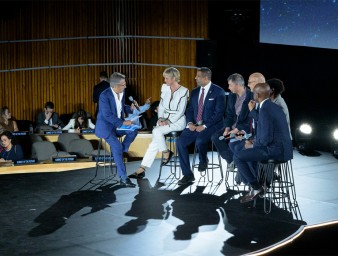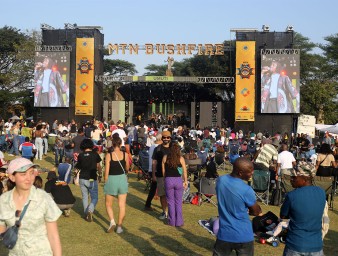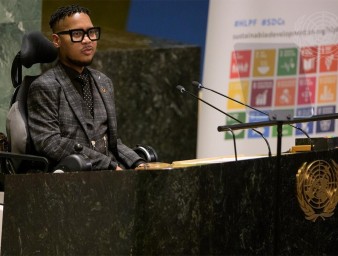People share priorities in first-ever review of Guinea-Bissau’s sustainable development goals
14 July 2022
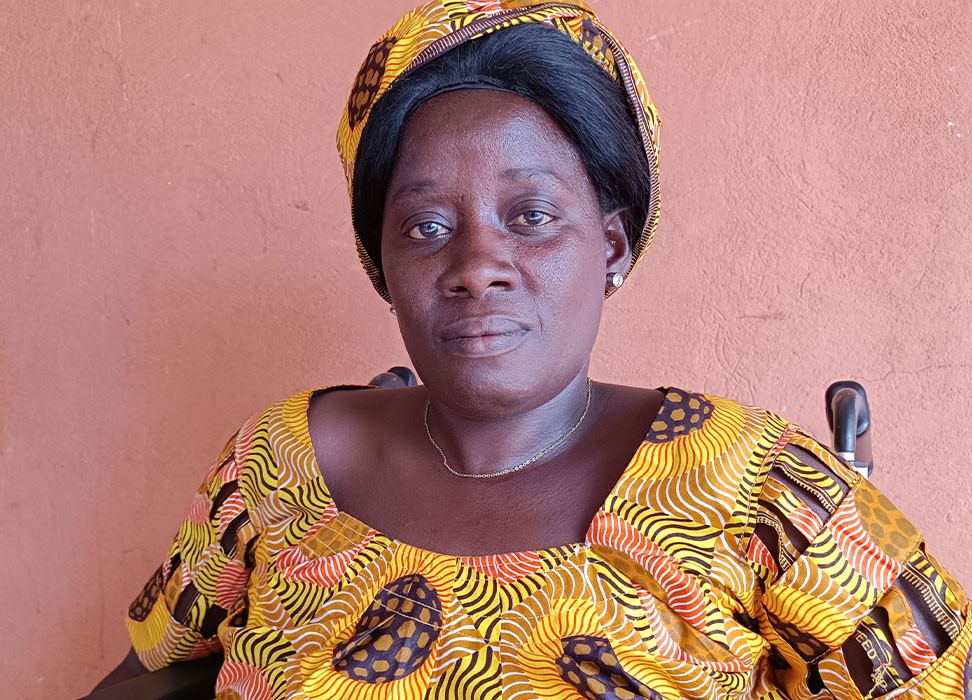
For Sábado Sambu, education is the most important thing in the world.
“I did not get to finish school. In the old days, there was forced marriage and my parents gave me into a forced marriage,” she said. “Then I was paralysed and found myself in a wheelchair.”
Sambu, now 43, was educated only to the fifth grade, and was married according to the customs of her Mansoancas ethnic group in Guinea-Bissau. Although she currently works a small business making clothes to help support her family, she wanted to make it clear that schooling matters.
“The best thing in the world is school. If you do not have an education, then you are nobody. The first thing in the world is to have health to grow well, then enrol in school and finish your education,” she said.
Sambu’s story was one of many gathered as part of a wide-ranging consultative review of Guinea-Bissau’s progress on the Sustainable Development Goals (SDGs). For the first time since the adoption by UN Member States of the SDGs in 2015, Guinea-Bissau has undertaken a review of its efforts to achieve them.
In order to do this, the country has enlisted the support of the UN presence in Guinea-Bissau, under the aegis of the UN Resident Coordinator, including UN Human Rights through its Surge Initiative.
The Surge Initiative aims to accelerate the realization of economic and social rights in countries by helping to create conditions to rebuild economies with people at the centre, and reduce inequalities. The project does this by providing in-country support.
A ground-breaking, inclusive and participatory SDGs review process
Over the course of a month, a team made up of UN agencies, along with the Ministry of Economy, Planning and Regional Integration, and the Ministry of Foreign Affairs, organized consultations in all nine regions of Guinea-Bissau. The consultations, which took place earlier this year, were a chance to create a dialogue between local and national government representatives and Guinea-Bissau citizens from all parts of the country and all walks of life. Consultations brought together government officials, professional associations, traditional and religious leaders, and representatives of groups most at risk of being left behind such as women, children, people with disabilities and those living in remote areas.
Ranking at 175 out of 189 countries in the 2020 Human Development Index, Guinea-Bissau is one of the least developed countries in the world. A small country with 1.8 million inhabitants, 60 per cent of the population is estimated as being younger than 25 years of age and more than half are women. Further, over 70 per cent of the population is living below the poverty line and in rural areas, making inequalities also high as demonstrated by data indicating that the richest 10 per cent share 42 per cent of the national income.
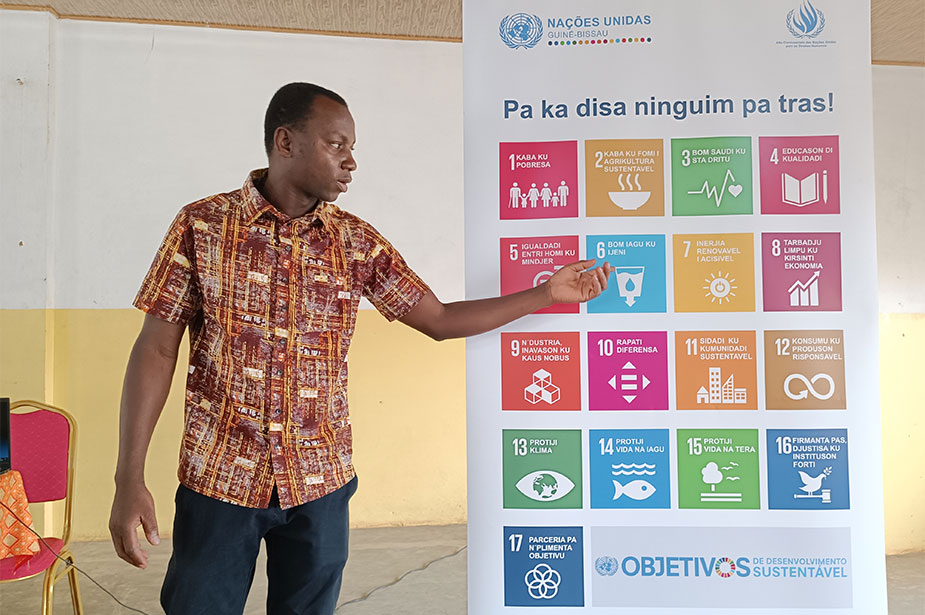
Local official explains the SDGs in Creole during a consultation. © NL da Luz
More than 300 people participated in these consultations, where they expressed concerns about and visions for the development of Guinea-Bissau. Through the consultations, officials were able to assess the state of implementation of some of the SDGs and which ones were of top concern. Some of the top concerns included access to clean water, access to health services, combatting inequalities, education and combatting poverty.
“Energy and education are the most needed to improve Guinea-Bissau,” said Aminata Camará, representing the Rural Women’s Organization. “If there is no power, our children cannot study. If they cannot study what will become of their future?”
Sustainable Development Goals localized
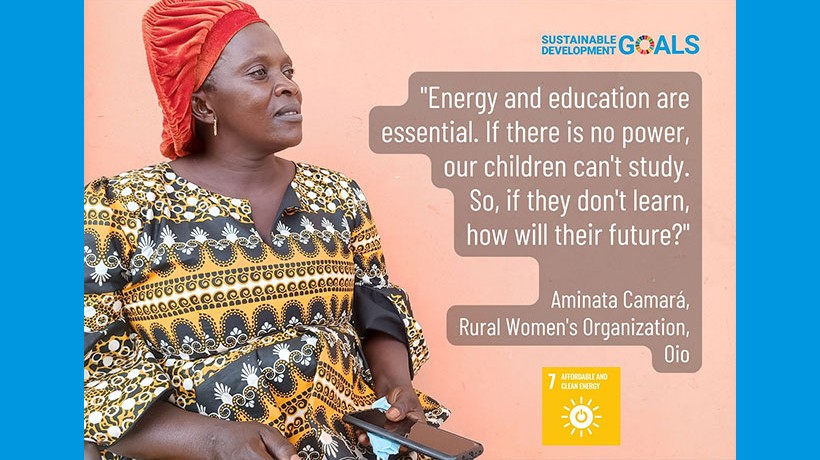

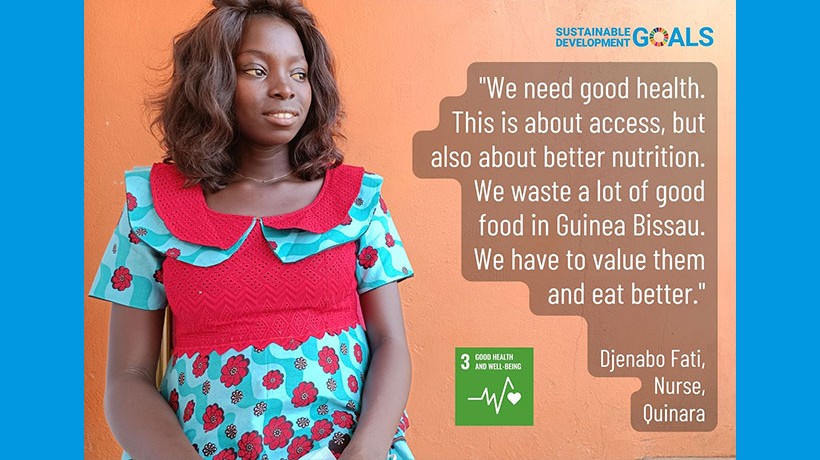

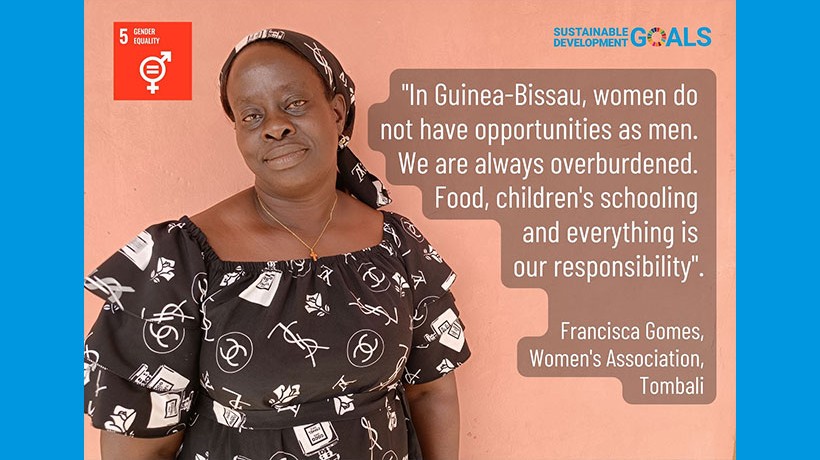
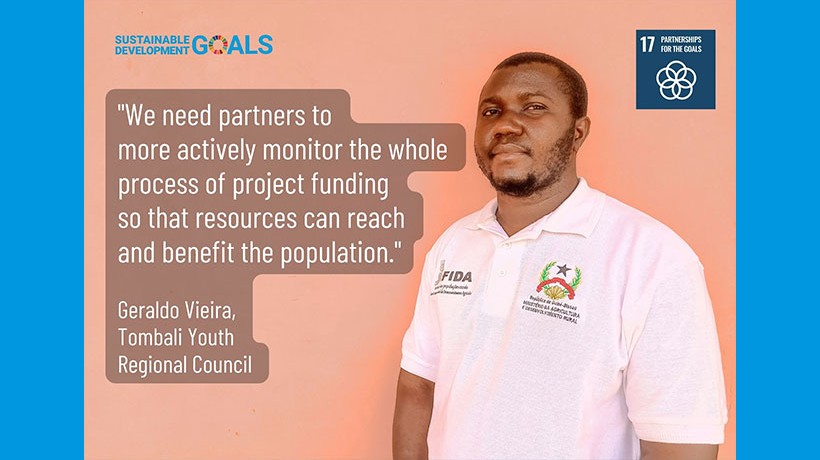

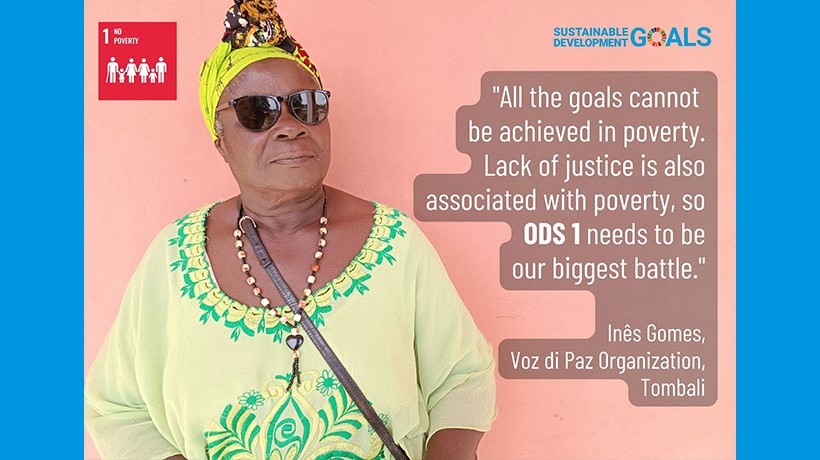
The consultations also contributed to raise awareness of the 2030 Agenda – including its links to human rights - as many of the participants’ knowledge of the SDGs was limited. For that purpose, the SDGs were, for the first time ever, translated into Guinea-Bissau creole, Kiriol, and widely distributed.
“The VNR is a process, one that should involve all stakeholders, as everyone can contribute to implementation of Agenda 2030,” said Elisabeth da Costa, senior human rights advisor who helped lead the Surge initiative team on the project. “Thanks to the Surge Initiative we were able to support the Government of Guinea-Bissau in ensuring an open, participatory and inclusive VNR. The voice of representatives of groups most left behind was heard.”
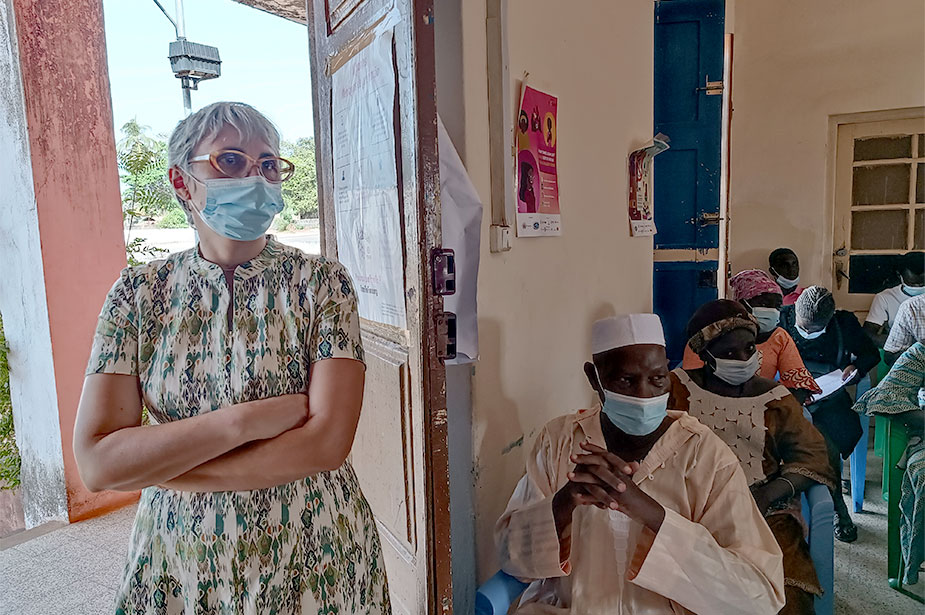
Senior Human Rights Officer Elisabeth da Costa listens during a consultation. © NL da Luz
The State of Guinea-Bissau is due to present its report at the UN High-level Political Forum on Sustainable Development in July 2022.
